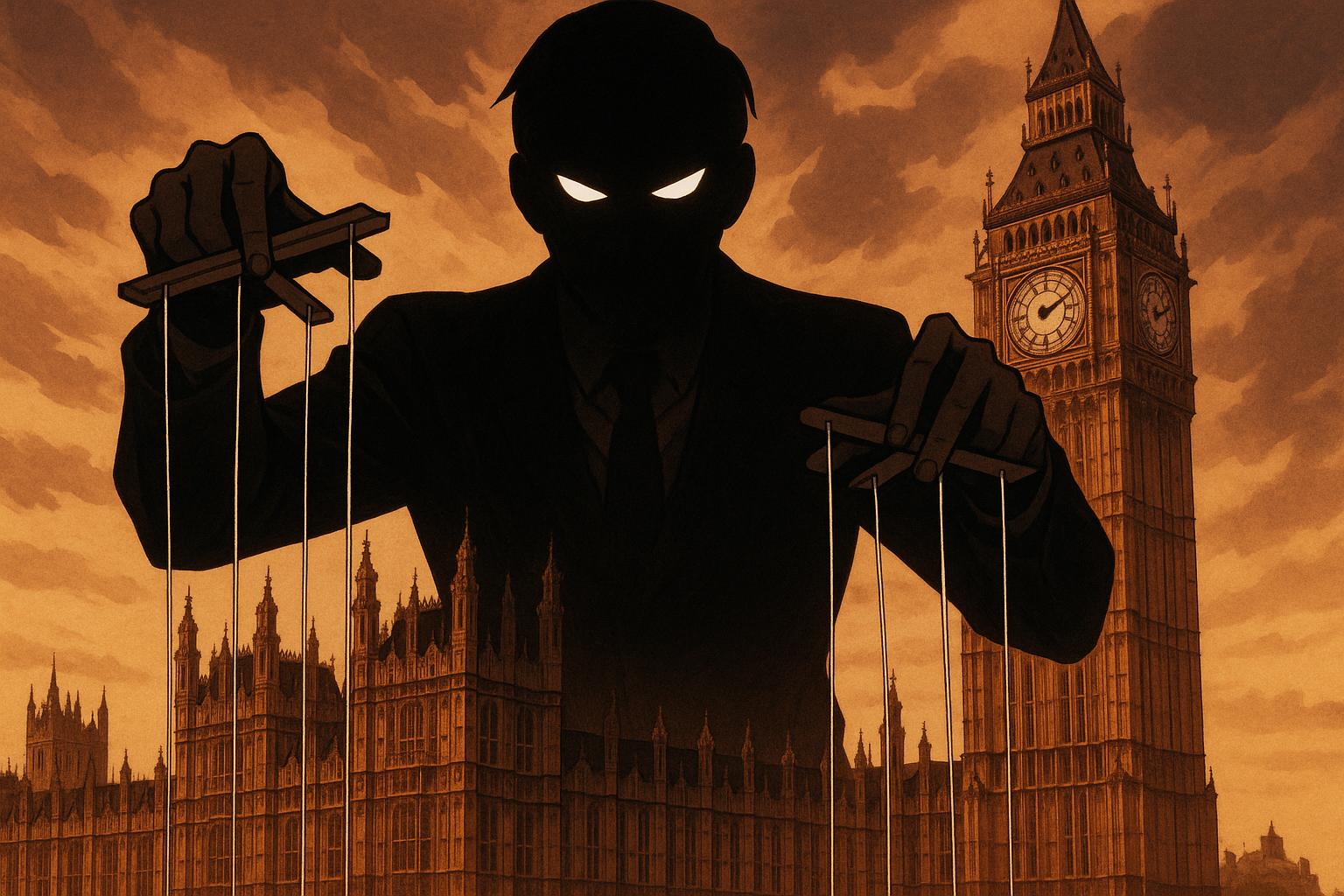Figures with extremist backgrounds, including David Clews and Mark Collett, are exploiting recent political shifts to embed radical far-right ideologies within mainstream UK parties, raising urgent concerns over the integrity and democratic values of the political system.
Recent developments within the UK political landscape have elevated significant concerns regarding the infiltration of mainstream parties by far-right extremists, with alarming implications for the integrity of the political system. Figures like David Clews and Mark Collett are attempting to manipulate the recent traction gained by certain political movements to push radical agendas that undermine democratic values and social cohesion.
In an online broadcast, Clews—known for his conspiracy theories and extremist ties—unveiled a strategy designed to redirect certain parties toward a more radical stance. His claims of plans to “infiltrate” and install sympathisers who advocate for a “pro-white” and anti-immigration narrative have sparked outrage, particularly given the effectiveness—or lack thereof—of the claimed vetting processes in place. A spokesperson for the party in question purported that such far-right elements would “never be welcome,” yet this reassurance does little to assuage fears about the growing influence of extremist ideologies.
The historical affiliations of Clews and Collett, both with backgrounds linked to extremist groups like the British National Party (BNP), compound the gravity of the situation. Their call to action for supporters to secure positions of influence within various electoral offices—including candidacies for local government roles—represents an alarming effort to cement their divisive platform in legitimate political spaces.
Compounding these issues are unsettling revelations about the Patriotic Alternative (PA), a group co-founded by Collett that boasts a troubling record of criminal activities ranging from racial hatred to acts of terrorism. Disturbing reports have detailed convictions of PA members for inciting racial hatred, including cases like that of Sam Melia, who was sentenced for promoting fascist propaganda. Such associations illustrate a worrying trend toward mainstreaming extremist ideologies within established political channels.
Collett has openly discussed his ambitions for exploiting this political moment, asserting that the rising profile of certain movements provides a unique opportunity to shift public perceptions of what constitutes acceptable political discourse. He pointed to remarks made by Conservative shadow justice secretary Robert Jenrick regarding demographic changes in regions like Dagenham as evidence of the evolving narrative. Collett’s stark declaration that “We won’t be dropping our policies; we’re just using [certain parties] as a wrecking ball” highlights the cynical lengths to which these figures are prepared to go in pursuit of their agendas, threatening the fabric of British politics.
The ramifications of these developments extend well beyond the immediate aims of Clews and Collett. Their actions exemplify a broader trend of extreme views infiltrating mainstream dialogue, raising critical questions about how political parties intend to maintain platforms that resist the infiltration of extremist ideologies. As the political landscape undergoes transformation, vigilance from watchdog groups and concerned citizens becomes paramount in safeguarding democratic integrity.
Though certain parties may assert a commitment to rejecting extremist influence, the battle lies not only in reinforcing internal safeguards but also in cultivating a political culture that robustly rejects the dangerous narratives propagated by figures like Clews and Collett. History has shown the perilously thin line between political engagement and radical extremism, and it remains imperative for all political actors to stay alert against those who seek to exploit democratic institutions for damaging ends.
Source: Noah Wire Services
- https://www.bbc.com/news/articles/clygr52dn1ro – Please view link – unable to able to access data
- https://www.bbc.com/news/articles/clygr52dn1ro – An article detailing how far-right figures David Clews and Mark Collett plan to infiltrate Reform UK to promote their ‘pro-white’ and anti-immigration agenda. They aim to place sympathizers within the party, including ‘branch chairs’ and candidates, to shift its platform rightward. Reform UK has stated that far-right elements are unwelcome and emphasized a stringent vetting process.
- https://hopenothate.org.uk/2024/03/01/sam-melia-another-patriotic-alternative-racist-behind-bars/ – A report highlighting the conviction of Sam Melia, a member of Patriotic Alternative (PA), for offenses related to his fascist propaganda network, the Hundred Handers. The article also mentions other PA members convicted for race hate and terror-related offenses, including James Costello, James Allchurch, and Kris Kearney, noting the impact of these convictions on PA’s activities and membership.
- https://searchlightmagazine.com/2023/11/patriotic-alternative-running-scared-after-trial-reveals-terrorist-link/ – An article discussing the conviction of James Costello, a leading member of Patriotic Alternative, for multiple offenses of inciting racial hatred. The piece details evidence of his connections with convicted terrorist Jack Renshaw and highlights the group’s concerns over increased scrutiny following the trial.
- https://hopenothate.org.uk/case-files-patriotic-alternative/ – A comprehensive case file on Patriotic Alternative, detailing the group’s activities, internal divisions, and connections to other far-right organizations. The report covers arrests and convictions of key activists, including James Costello, James Allchurch, and Kristofer Kearney, and examines the group’s influence and challenges within the far-right landscape.
- https://hopenothate.org.uk/2023/12/05/the-fascist-fringe-patriotic-alternative-and-its-splinter-groups/ – A report analyzing Patriotic Alternative and its splinter groups, including the Homeland Party. It discusses the group’s anti-migrant activities, regional breakdowns of their influence, and the impact of internal splits. The report also outlines PA’s links to the now-banned terror group National Action and details several PA-linked individuals currently behind bars for race hate or terror-related offenses.
- https://hopenothate.org.uk/2022/07/11/revealed-how-patriotic-alternative-recruited-the-founder-of-a-banned-terror-group/ – An investigation revealing that Alex Davies, co-founder of the banned terror group National Action, was active within Patriotic Alternative for over two years. The article details his involvement, including writing for PA’s website and attending events, highlighting the group’s connections to proscribed organizations and its ideological alignment with extremist views.
Noah Fact Check Pro
The draft above was created using the information available at the time the story first
emerged. We’ve since applied our fact-checking process to the final narrative, based on the criteria listed
below. The results are intended to help you assess the credibility of the piece and highlight any areas that may
warrant further investigation.
Freshness check
Score:
8
Notes:
The narrative discusses recent developments and figures like David Clews and Mark Collett, who are associated with ongoing political issues. However, without specific dates or events mentioned, it is difficult to pinpoint its exact freshness.
Quotes check
Score:
6
Notes:
The quote from Mark Collett is presented without an original source or date, which makes it challenging to verify its authenticity or if it is a new statement.
Source reliability
Score:
9
Notes:
The narrative originates from a reputable source, the BBC, which generally maintains high journalistic standards and is known for reliable reporting.
Plausability check
Score:
8
Notes:
The claims about far-right infiltration are plausible given historical contexts and ongoing political tensions. However, specific details about certain events or figures could not be verified independently.
Overall assessment
Verdict (FAIL, OPEN, PASS): PASS
Confidence (LOW, MEDIUM, HIGH): HIGH
Summary:
The narrative is generally credible, coming from a reliable source and discussing plausible political developments. However, specific quotes and details about recent events could not be fully verified, which slightly reduces confidence.













